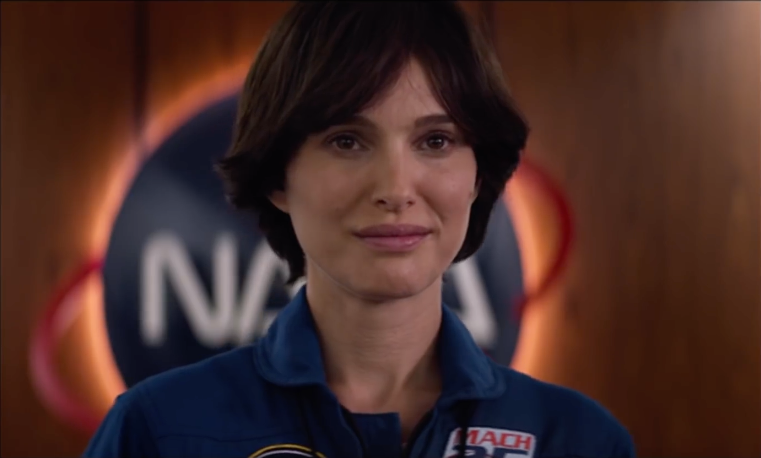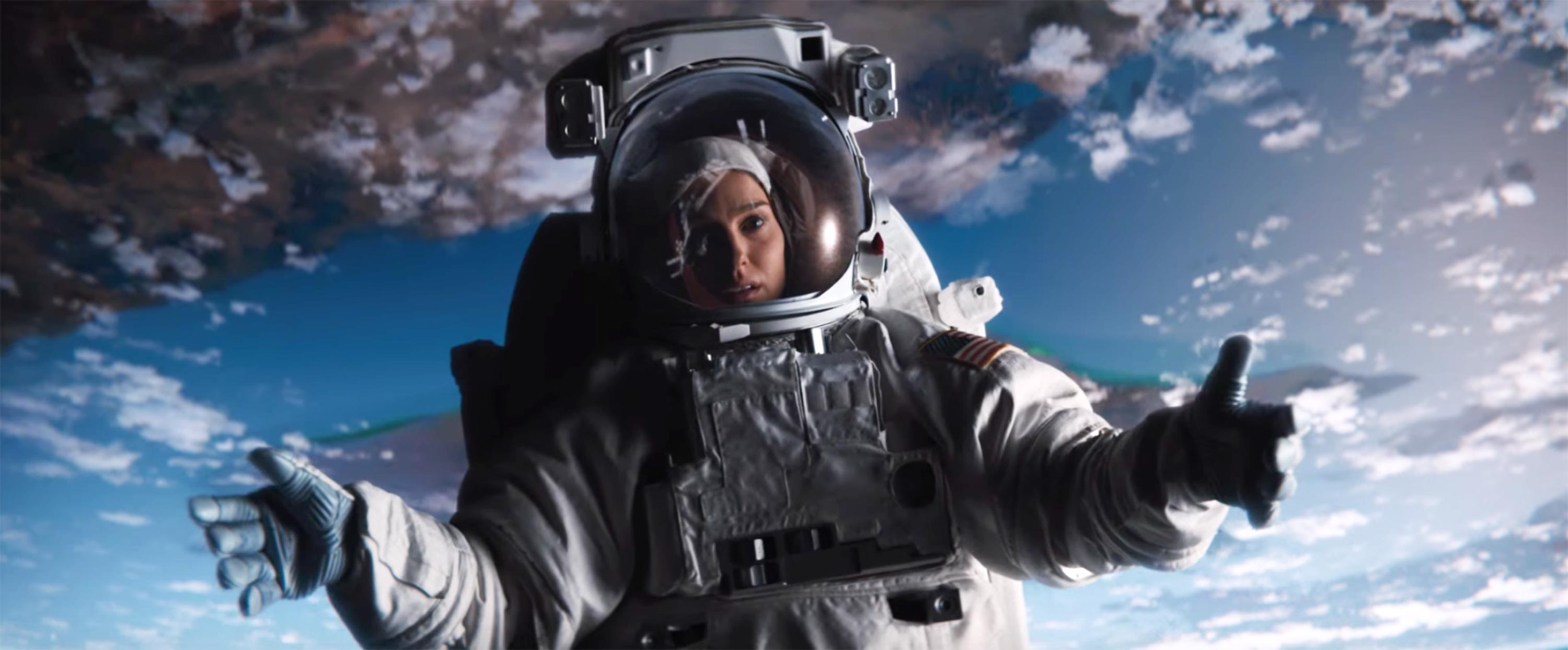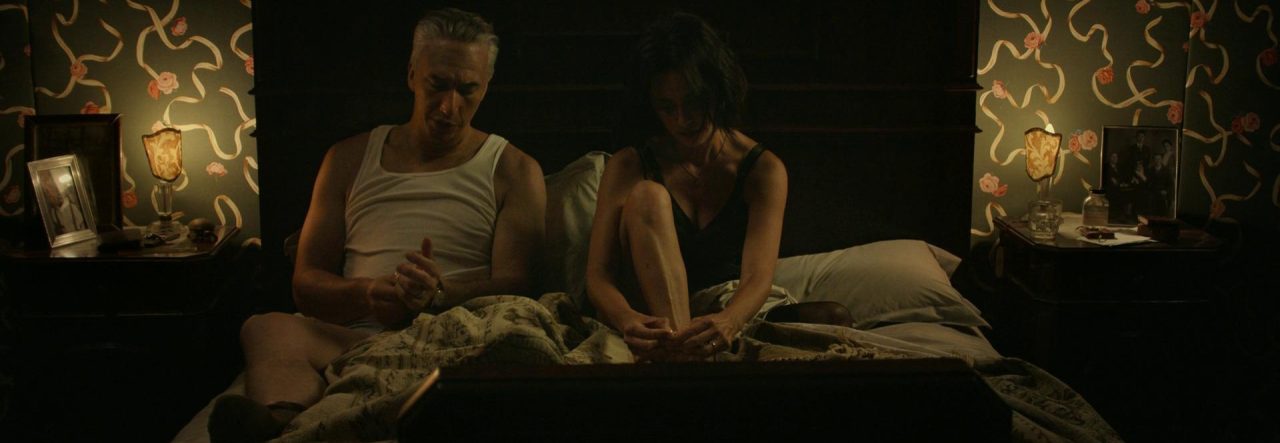 Natalie Portman is as terrific as ever in a drama that never really ignites or fulfils its potential, but which I nonetheless quite enjoyed. It serves as an unintended but welcome companion-piece to First Man, offering a more contemporary, and female, perspective on how Space affects the human experience; I think its very interesting, and certainly most welcome, that new films are starting to revaluate the Space Race and humanity’s faltering steps into the Cosmos. Its a pity that there’s little particularly profound in these films, but we’re clearly getting there.
Natalie Portman is as terrific as ever in a drama that never really ignites or fulfils its potential, but which I nonetheless quite enjoyed. It serves as an unintended but welcome companion-piece to First Man, offering a more contemporary, and female, perspective on how Space affects the human experience; I think its very interesting, and certainly most welcome, that new films are starting to revaluate the Space Race and humanity’s faltering steps into the Cosmos. Its a pity that there’s little particularly profound in these films, but we’re clearly getting there.
In First Man, the engineer/test pilot enigma that is Neil Armstrong, first man to walk on the moon, inevitably remained the enigma, even though the film offered some suggestions regards what made the man ‘tick’. The sense of the unknowable (in Armstrong) was mirrored by the unknowable in Space, the immensity of the cosmos: better to send a poet to the moon if we ever hope to come close to understand, engineers and test pilots can only be frustrated by their own limitations when trying to explain the unknowable. Where that film succeeded was in how it reinvigorated that adventure of space travel for new audiences, and indicated how terrifying it can be.
That sense of the profound, the intensity of the life-changing experience of seeing all the Earth from a distance, cannot be understated, and proves a centre-point of Lucy in the Sky, telling the true story (or an approximation of it) of Lisa Nowak, a Nasa astronaut who after a space shuttle mission flew off the deep end threatening to kidnap/harm a love rival in a tempestuous astronaut love triangle. Noah Hawley’s film Lucy in the Sky posits that Nowak was suffering from an existential crisis having been ‘changed’ by her experience in orbit: essentially leaving her unable to cope with the mundane back on Earth.
 In this I think it succeeds, thanks largely to Portman’s great performance, as she shows herself grasping vainly at life on Earth when all she really wants is to go back up ‘there’ in order to experience again that exhilarating, incredible ‘high’. The film suggests that you can recruit the intellectual and physical Elite, train pilots and engineers for the mechanics and procedures of spaceflight, but cannot really prepare them for the experience and what it might do to them emotionally and spiritually. There is something fragile and broken within Lucy back on Earth, something disconnected from her husband and those around her, something wholly unfulfilling about ordinary life. Maybe this would have been enough for the film- its when it goes on with the crime story elements, telling a soap opera through the lens of the Nasa Elite, that the film falters somewhat. The irony of course is that even some of the most fantastic elements of the story actually turn out to be quite true, or very close to it: I suspect some viewers instantly dismiss some of the wildest stuff as Hollywood invention, not realising how close to the truth it is (much has been changed and Lucy’s story remains very loosely based on that of Lisa, but what surprise many is just what was changed and what wasn’t- I won’t expand upon it here for fear of spoilers, but anyone who watches the film would be encouraged to read up on the true story).
In this I think it succeeds, thanks largely to Portman’s great performance, as she shows herself grasping vainly at life on Earth when all she really wants is to go back up ‘there’ in order to experience again that exhilarating, incredible ‘high’. The film suggests that you can recruit the intellectual and physical Elite, train pilots and engineers for the mechanics and procedures of spaceflight, but cannot really prepare them for the experience and what it might do to them emotionally and spiritually. There is something fragile and broken within Lucy back on Earth, something disconnected from her husband and those around her, something wholly unfulfilling about ordinary life. Maybe this would have been enough for the film- its when it goes on with the crime story elements, telling a soap opera through the lens of the Nasa Elite, that the film falters somewhat. The irony of course is that even some of the most fantastic elements of the story actually turn out to be quite true, or very close to it: I suspect some viewers instantly dismiss some of the wildest stuff as Hollywood invention, not realising how close to the truth it is (much has been changed and Lucy’s story remains very loosely based on that of Lisa, but what surprise many is just what was changed and what wasn’t- I won’t expand upon it here for fear of spoilers, but anyone who watches the film would be encouraged to read up on the true story).
Ultimately Hawley struggles to balance the profundity with the inanity – the life-changing endeavour of humanity in Space with the mundane everyday strife of messy relationships. It may struggle and fail but I think its worthwhile all the same; at least it raises some interesting questions, even if, like First Man, it fails to arrive at any convincing answers.
